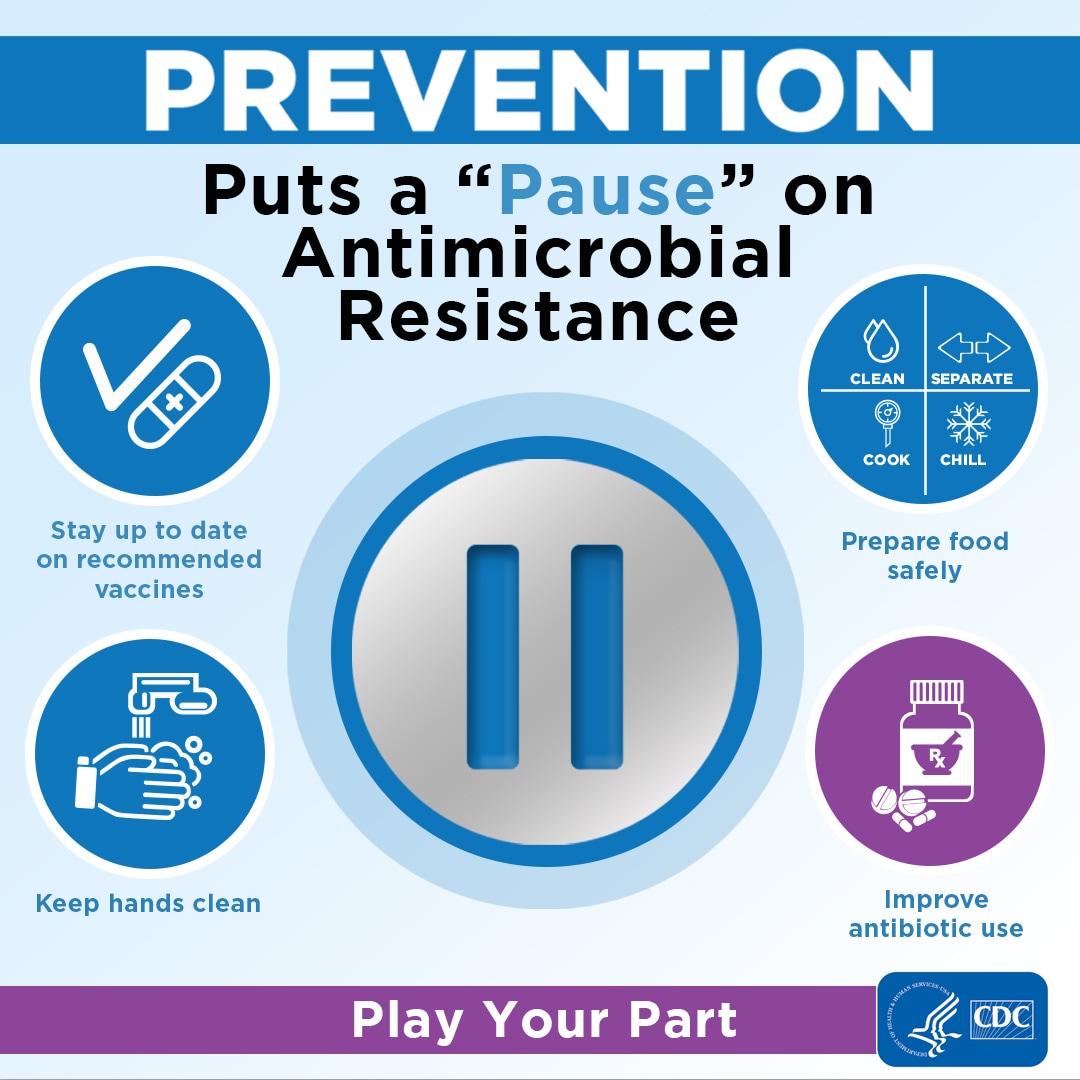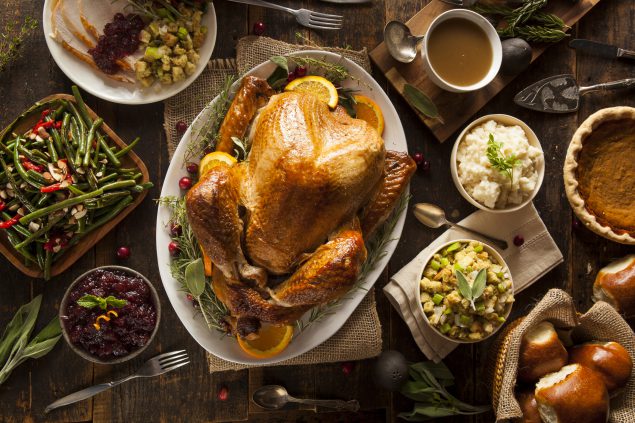Food Safety Updates From CDC

U.S. Antibiotic Awareness Week Starts November 18
U.S. Antibiotic Awareness Week (USAAW) is November 18–24. The annual observance reminds us about the importance of improving antibiotic and antifungal drug use and preventing the spread of antimicrobial-resistant bacteria, including those spread through food.
Antimicrobial resistance happens when germs like bacteria and fungi develop the ability to defeat the drugs designed to kill them. That means the germs are not killed and continue to grow.
Antibiotics and antifungals save lives, but any time they are used, they can contribute to the development and spread of antimicrobial resistance. Antimicrobial-resistant infections are harder and more costly to treat and can cause severe infections, and even death.
Everyone has a role in helping to slow the spread of antimicrobial resistance. Play your part by preparing food safely to reduce your risk for foodborne illness and by taking antibiotics only when needed and exactly as prescribed by your healthcare provider.
Antimicrobial resistance is a significant global health challenge. Learn more about antimicrobial resistance and food, and help raise awareness by sharing social media messages using #USAAW22 and #BeAntibioticsAware.

Today’s Food Safety Tip
When thawing your Thanksgiving turkey, you can use the refrigerator, cold water, or microwave method.
When thawing in the refrigerator, allow about 24 hours of thawing for each 4 to 5 pounds of turkey. For thawing in cold water, allow about 30 minutes of thawing for each pound of turkey and change the water every 30 minutes. If thawing in the microwave, follow the microwave manufacturer’s instructions.
Get more information on storing, thawing, handling, cooking, and reheating your turkey.
